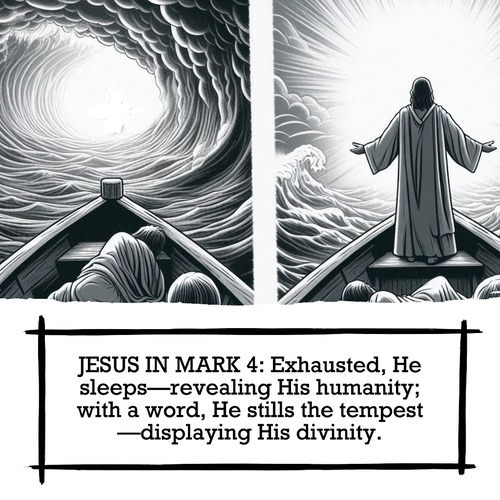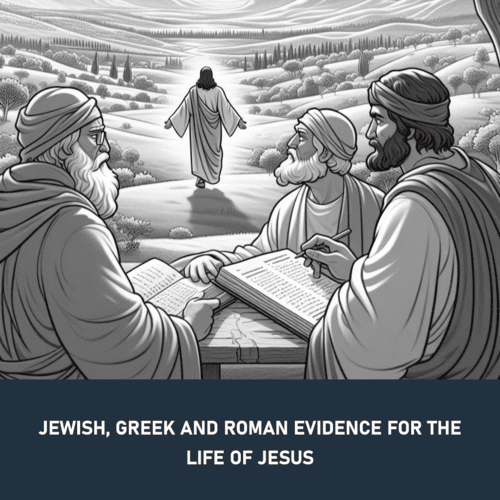Satan’s Lie: Faith Is A Crutch For The Intellectually Lazy
Part of our series: “Satan’s Lies: Common Deceptions in the Church Today”
The Thinking Person’s Guide to Faith: Debunking the Laziness Myth
Is religious faith a crutch for the intellectually weak—a way to avoid hard questions and complex thinking? This common accusation couldn’t be further from the truth. In fact, genuine faith often demands more rigorous intellectual engagement than casual scepticism.
Satan’s Lie: Faith is for the intellectually lazy The idea that faith is “lazy” is a stereotype that misses the demands faith actually makes on believers. Christianity not only encourages, but requires, us to question, test, and defend our beliefs. As Christians, we wrestle with doubts and engage in lifelong learning to deepen our understanding of God, scripture, and the world.
Faith calls for intellectual engagement, often pushing us as believers beyond our comfort zones. To pursue Christian faith sincerely is to pursue truth deeply—an exercise that encompasses both the intellect and the heart.
The Historical Foundation
History reveals a different story than modern critics might expect. The great universities of the West—Oxford, Cambridge, Harvard—were founded by people of deep faith who saw no contradiction between rigorous thinking and religious conviction. The scientific method itself emerged from a worldview that believed in an orderly, intelligible universe designed by a rational Creator.
Notable thinkers throughout history, from Augustine to Pascal, demonstrated that faith and intellect aren’t merely compatible—they’re complementary. These weren’t individuals seeking easy answers; they were rigorous thinkers who found their faith demanded their highest intellectual engagement.
Understanding True Faith
Here’s a crucial distinction: authentic faith isn’t blind faith. It’s not about switching off our minds or avoiding difficult questions. Rather, it’s about engaging with the deepest questions of existence while acknowledging our intellectual limitations. True faith recognises human reason, while valuable, isn’t ultimate—is not because reason is unimportant, but because it too needs a foundation.
Consider these intellectual demands of faith:
- Grappling with apparent paradoxes
- Engaging with sophisticated theological concepts
- Understanding historical and cultural contexts
- Applying ancient wisdom to modern challenges
- Reconciling divine revelation with human experience
The Rigorous Path of Faith
Real faith isn’t about turning off our brain—it’s about using it more deeply. When we take God’s truth seriously, we have to think hard about what we believe and why. This means carefully studying ancient writings that have challenged even the brightest minds throughout history. It means figuring out how timeless truths apply to today’s world. Rather than offering easy answers, true faith presents us with deep mysteries that require serious thought to understand.
Modern Misconceptions
People assume faith is believing without evidence. True faith, however, is more like the trust you develop after careful investigation. It’s built on historical evidence, careful reasoning, and personal experience—all working together to show us something trustworthy. When we look at faith this way, we see it’s not about ignoring facts, but about using our minds to understand truths that go beyond what we can just see and touch.
The Cognitive Demands
Understanding faith properly takes real mental work. We need to learn how ancient people thought and lived to understand their writings better. We need to think carefully about big questions like why we exist and what gives life meaning. This often means wrestling with ideas that seem to conflict at first glance—like how God can be in control while humans make real choices. Working through these questions requires our best thinking, not blind acceptance.
Real-World Application
The thinking that faith requires isn’t just about religious ideas—it changes how we look at everything. When faced with having to take tough decisions, we have to figure out how eternal principles apply to specific situations. Our understanding of who we are as human beings, shaped by both God’s Word and human experience, affects how we approach relationships and engage with society. This way of seeing the world makes us think carefully about everything from scientific discoveries to current events.
The Reality of Doubt
Questions and doubts aren’t enemies of faith—they’re often the very things that help faith grow stronger. When we run into difficult questions or things that don’t seem to make sense, real faith encourages us to dig deeper rather than look away. Wrestling with doubt can actually lead us to understand things better. It pushes us to study more thoroughly and think more carefully. Having questions doesn’t mean our faith is weak; it means we’re taking the journey of understanding seriously, even while accepting that some things will remain mysterious.
Moving Forward
Faith, then, demands our best thinking, not its absence. It requires:
- Careful study
- Logical reasoning
- Historical understanding
- Philosophical engagement
- Continuous learning
Critics may think faith is a leap, but it’s better understood as a reasonable step based on evidence, experience, and careful consideration. It’s not about abandoning reason, but recognising its proper place within a larger framework of understanding.
Conclusion
Far from being an intellectual shortcut, genuine faith demands rigorous thinking and constant engagement with complex ideas. It calls us to use our minds to their fullest while acknowledging their limitations. In doing so, it offers not just answers, but a framework for understanding that enhances rather than diminishes intellectual life.
Satan’s Lie: Faith is for the Intellectually Lazy—Related FAQs:
Why is it intellectually lazy to assume faith is for the intellectually lazy? Dismissing faith as mere intellectual laziness ignores the massive body of sophisticated theological and philosophical work produced by religious thinkers throughout history. It conveniently avoids engaging with the actual arguments and evidence for religious belief. Most ironically, casually dismissing faith often reveals a shallow understanding of both faith and reason—the very intellectual laziness the critic claims to oppose.
Why does faith appeal to both intellectual scholars and simple believers? Truth, when it’s really true, speaks to humans at every intellectual level—just as gravity works for both physicists and farmers. Faith addresses the deepest human questions in ways that can be both profoundly simple and endlessly complex. The same gospel that offers straightforward hope to a child can occupy a philosopher’s most sophisticated thinking for a lifetime. This multi-layered nature of truth actually suggests its divine origin.
How can smart people believe in things they can’t prove scientifically? Every one of us believes numerous things that can’t be scientifically proven—from the existence of other minds to the reliability of memory to basic moral truths. Science itself rests on philosophical assumptions that can’t be scientifically proven. Smart people recognise that truth extends beyond what can be measured or proven in a laboratory.
How exactly does faith complement science and philosophy rather than oppose them? Faith provides the philosophical foundation that makes scientific inquiry meaningful – the belief that the universe is orderly and comprehensible because it was created by a rational God. Rather than conflicting with science, faith explains why science works in the first place. Philosophy and faith work together to address questions about meaning, purpose, and ethics that science alone cannot answer. The idea that these disciplines conflict is a modern misconception that ignores their deeply complementary nature.
Why do I need faith when I can just think logically about everything? Pure logic itself rests on unprovable assumptions and faith commitments about the reliability of human reason and the existence of truth. Every worldview, including atheism, requires faith in something as its foundation. Faith doesn’t replace logic—it provides the necessary foundation for logic to make sense in the first place.
Isn’t faith just a way to avoid thinking hard about difficult questions? Faith actually forces us to confront the hardest questions of existence head-on. Anyone can shrug and say “it all just happened,” but it takes serious mental work to understand how an infinite God intersects with human history, how free will relates to divine sovereignty, and how ancient wisdom applies to modern problems. Far from being an escape, faith demands we think more deeply, not less.
Satan’s Lie: Faith is for the Intellectually Lazy—Our Related Posts
Editor's Pick

Self-Authentication: Why Scripture Doesn’t Need External Validation
"How can the Bible prove itself? Isn't that circular reasoning?" This objection echoes through university classrooms, coffee shop discussions, and [...]

Do Christians Need Holy Shrines? Why the Reformed Answer Is No
Walk into a medieval cathedral and you'll encounter ornate shrines, gilded reliquaries, and designated "holy places" where pilgrims gather to [...]

I Want To Believe, But Can’t: What Do I Do?
"I want to believe in God. I really do. But I just can't seem to make it happen. I've tried [...]

BC 1446 or 1250: When Did the Exodus Really Happen?
WHY REFORMED SCHOLARS SUPPORT THE EARLY DATE Many a critic makes the claim: “Archaeology has disproven the biblical account [...]

Does God Know the Future? All of It, Perfectly?
Think about this: our prayers tell on us. Every time we ask God for something, we’re confessing—often without realising it—what [...]

Can Christian Couples Choose Permanent Birth Control?
Consider Sarah, whose fourth pregnancy nearly killed her due to severe pre-eclampsia, leaving her hospitalised for months. Or David and [...]

Bone of My Bones: Why Eve Was Created From Adam’s Body
"This at last is bone of my bones and flesh of my flesh!" Adam's joyful exclamation upon first seeing Eve [...]

Is Calvinism Fatalism in Christian Disguise? Think Again
We hear the taunt every now and then: "Calvinism is just fatalism dressed up in Christian jargon." Critics argue Reformed [...]

Can Churches Conduct Same-Sex Weddings?
In an era of rapid cultural change, churches across America face mounting pressure to redefine their understanding of marriage. As [...]

Gender Reassignment: Can Christian Doctors Perform These Surgeries?
In the quiet of a clinic, a Christian physician faces a challenging ethical question. A patient sits across the desk, [...]
SUPPORT US:
Feel the Holy Spirit's gentle nudge to partner with us?
Donate Online:
Account Name: TRUTHS TO DIE FOR FOUNDATION
Account Number: 10243565459
Bank IFSC: IDFB0043391
Bank Name: IDFC FIRST BANK






